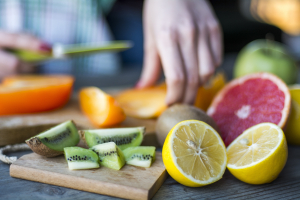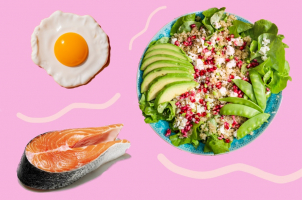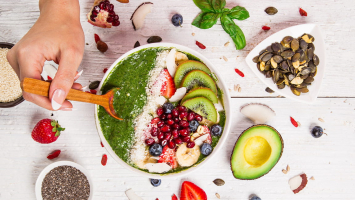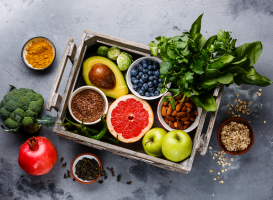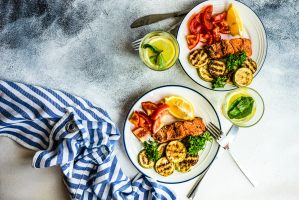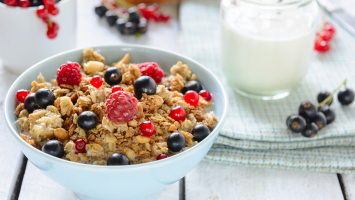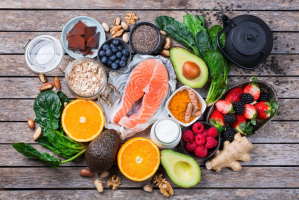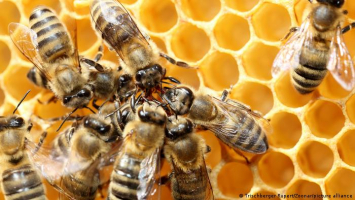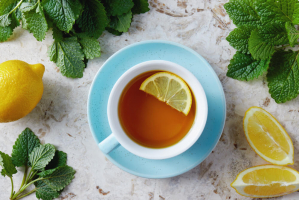Top 10 Healthy, High-Calorie Fruits to Help You Gain Weight
Gaining muscle or weight can be difficult for some people. Though they may not be the first foods that come to mind when trying to bulk up, a variety of fruits ... read more...can give your body the extra calories it needs to put on weight. Additionally, they include vital vitamins and minerals that will support your health. Here are some nutrient-dense, high-calorie fruits that can help with weight gain.
-
If you want to gain weight, bananas are a great option. In addition to being healthy, they also provide a lot of calories and carbs. The following nutrients are found in one medium-sized (118-gram) banana:
- Calories: 105
- Protein: 1 gram
- Fat: 0.4 grams
- Carbs: 27 grams
- Fiber: 3 grams
- Vitamin B6: 26% of the Daily Value (DV)
- Manganese: 13% of the DV
Bananas are very nutritious. They contain fiber, potassium, vitamin C, vitamin B6 and several other beneficial plant compounds. These nutrients may have a number of health benefits, such as for digestive and heart health. Bananas also contain a variety of additional micronutrients. Particularly green bananas are rich in resistant starch, according to research, resistant starch promotes better intestinal health. In order to put on weight, add bananas to smoothies or oatmeal with other high-calorie foods like nut butter or full-fat yogurt. Bananas are a handy on-the-go snack.
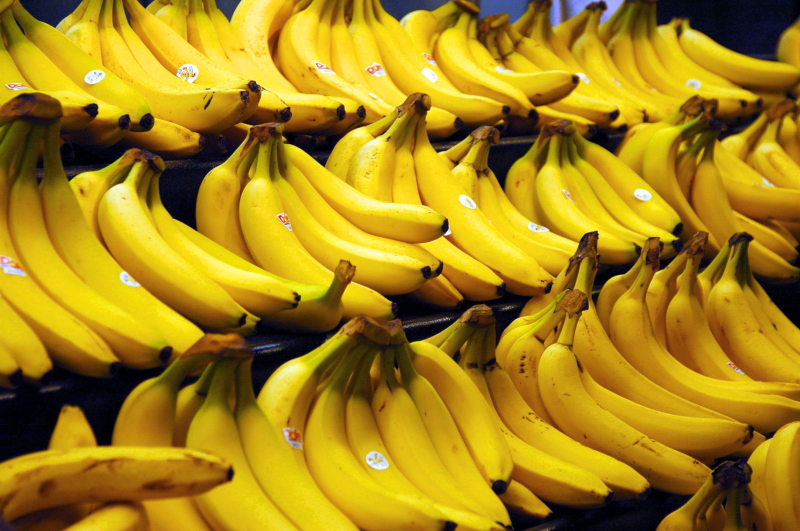
Bananas 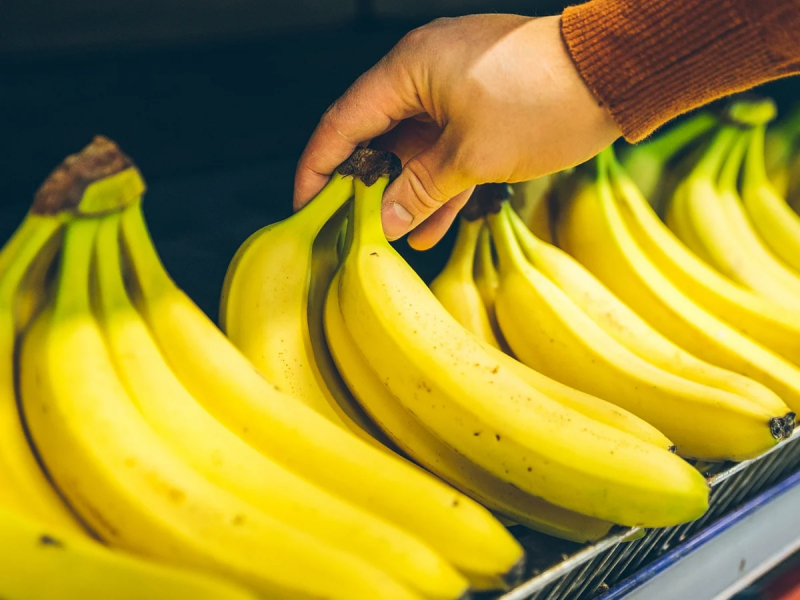
Bananas -
Avocados have a remarkable nutritional profile. Additionally, they are a great choice for anyone who wants to gain weight because they are high in calories and healthy fats. The following nutrients are present in 100 grams of a medium-sized avocado:
- Calories: 161
- Protein: 2 grams
- Fat: 15 grams
- Carbs: 8.6 grams
- Fiber: 7 grams
- Vitamin K: 17.5% of the DV
- Folate: 21% of the DV
You can include avocados as a healthy food. Avocados provide you with vitamins, minerals, and good fats that keep your body healthy and prevent disease. Numerous additional minerals, including potassium and the vitamins K, C, B5 (pantothenic acid), and B6, are also rich in avocados (pyridoxine). Additionally, they are rather versatile and have a variety of uses. Consider including them in salads and soups, or spread them alongside a protein source like eggs.
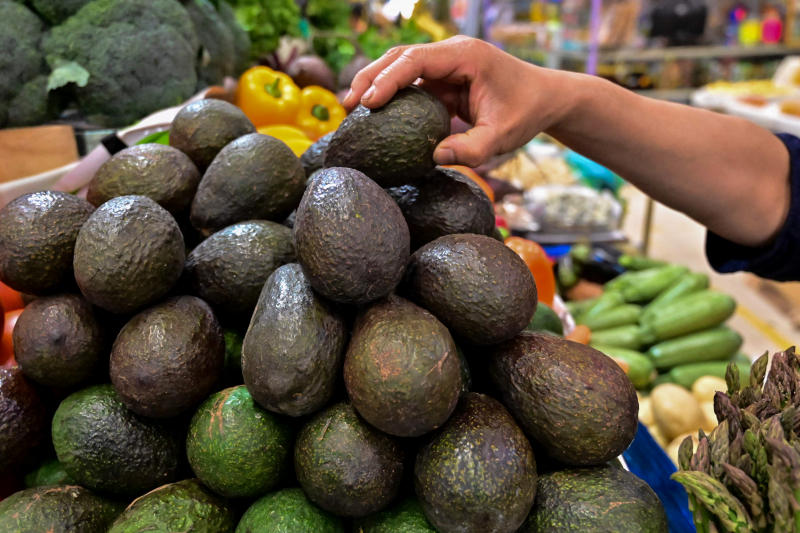
Avocados 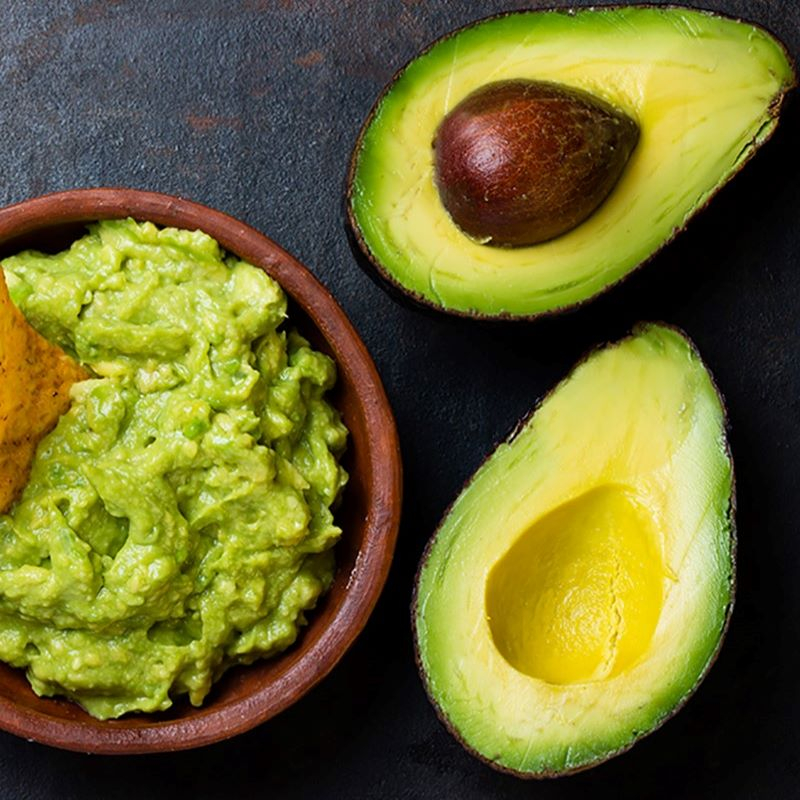
Avocados -
The many health benefits of the versatile fruit coconut have made it more well-liked. Being high in fat and low in carbohydrates, it's a great source of calories. The following nutrients are contained in a 1-ounce (28-gram) serving of coconut meat:
- Calories: 99
- Protein: 1 gram
- Fat: 9.4 grams
- Carbs: 4.3 grams
- Fiber: 2.5 grams
- Manganese: 17% of the DV
- Selenium: 5% of the DV
Coconut oil, which is found in coconut meat, may increase HDL (good) cholesterol and lower LDL (bad) cholesterol. Your risk of heart disease may go down if these signs improve. Furthermore, copper and phosphorus are two of the numerous vital minerals that are abundant in coconut flesh. Best of all, there are numerous ways to enjoy it. To add calories to your meals and snacks, try adding shredded coconut to fruit salads, stir-frying it, or blending it into soups and smoothies.
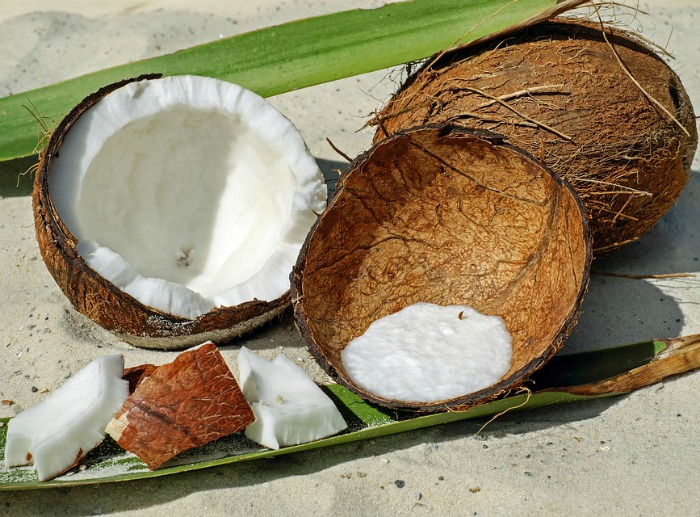
Coconut meat 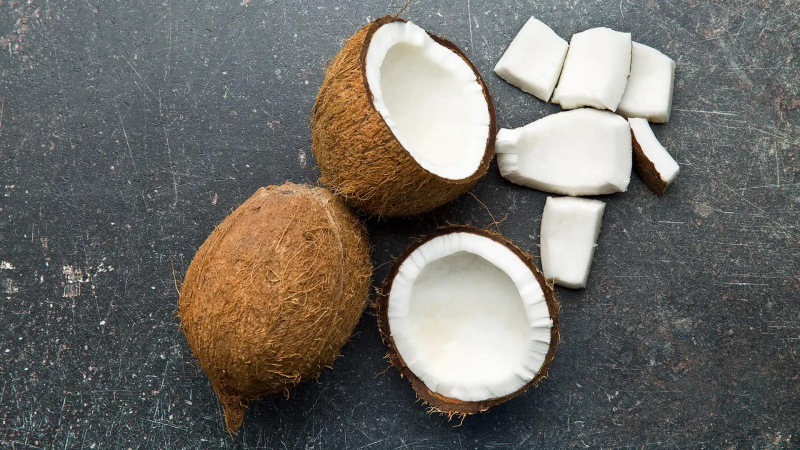
Coconut meat -
A tasty, sweet fruit with an impressive nutritious profile is the mango. Mangoes, like bananas, are a good source of calories, mostly from carbs. The following nutrients can be found in one cup (165 grams) of mango:
- Calories: 99
- Protein: 1.4 grams
- Fat: 0.6 grams
- Carbs: 25 grams
- Fiber: 3 grams
- Vitamin C: 67% of the DV
- Folate: 18% of the DV
Mangos can offer significant health advantages thanks to their vitamins, minerals, and antioxidants. For instance, vitamin K promotes healthy blood clotting and protects against anemia. Additionally, it is critical in supporting bone health. Mango also contains plenty of copper, a number of B vitamins, and vitamins A and E. Mango is tasty on its own, but it also works well in smoothies, salsas, and salads for the summer. If gaining weight is your objective, try combining fresh mango with ingredients that provide more calories, such as almonds or coconut.
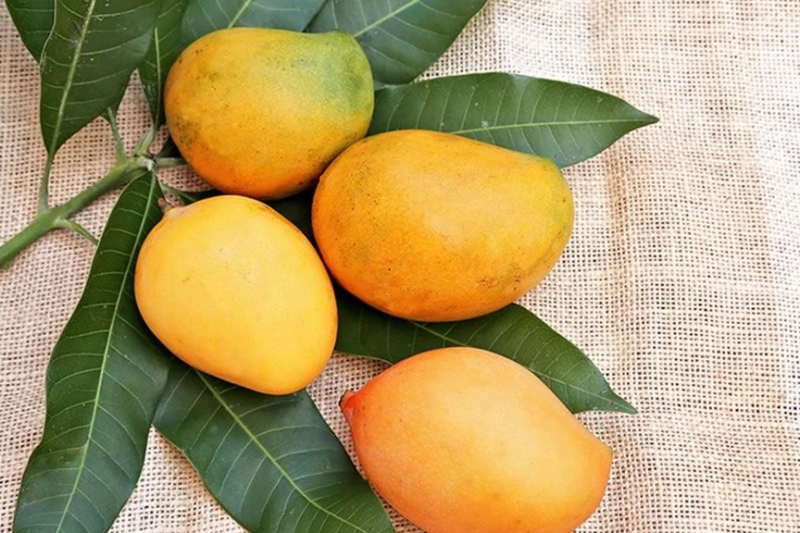
Mango 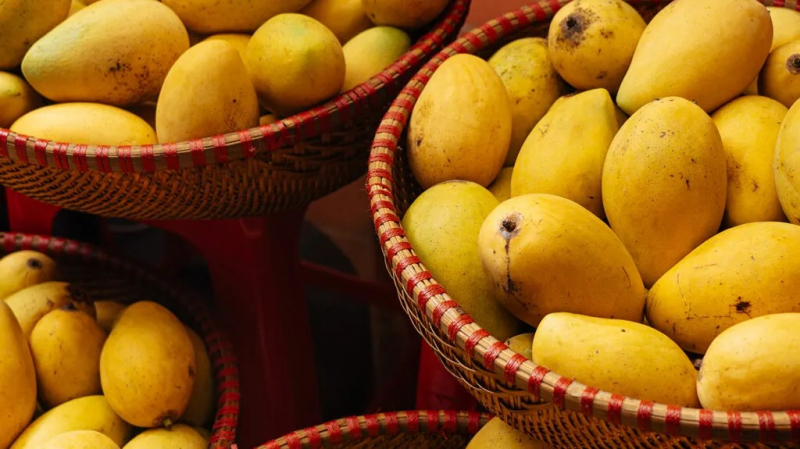
Mango -
The small, cylindric fruits of the tropical date palm are known as dates. In the majority of Western nations, they are normally offered dried and are rich in nutrients. The following nutrients are found in one date (24 grams):
- Calories: 66.5
- Protein: 0.4 grams
- Fat: 0.1 grams
- Carbs: 18 grams
- Fiber: 1.6 grams
- Potassium: 4% of the DV
- Magnesium: 3% of the DV
Include dates in your diet because they are a really healthful fruit. They include a lot of nutrients, fiber, and antioxidants, all of which may have benefits for your health, from better digestion to a lower risk of disease. Additionally, these fruits are a significant source of iron, manganese, copper, and vitamin B6. Dates are a versatile way to increase your calorie intake because they are often sold dried and have a long shelf life. They are delicious on their own or as a binder in baked dishes. For a nutritious, high-calorie snack, try stuffing dates with almond butter and coconut flakes.
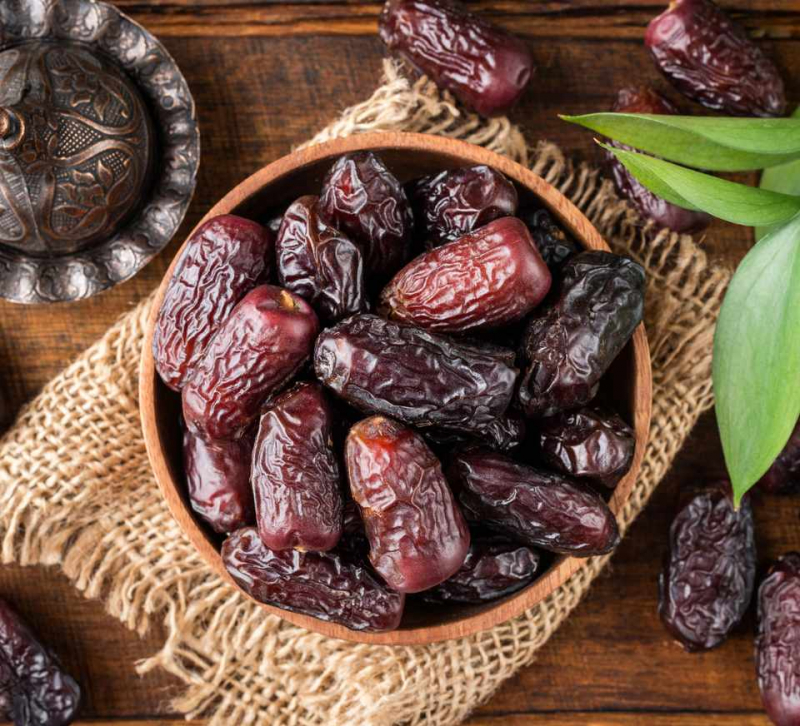
Dates 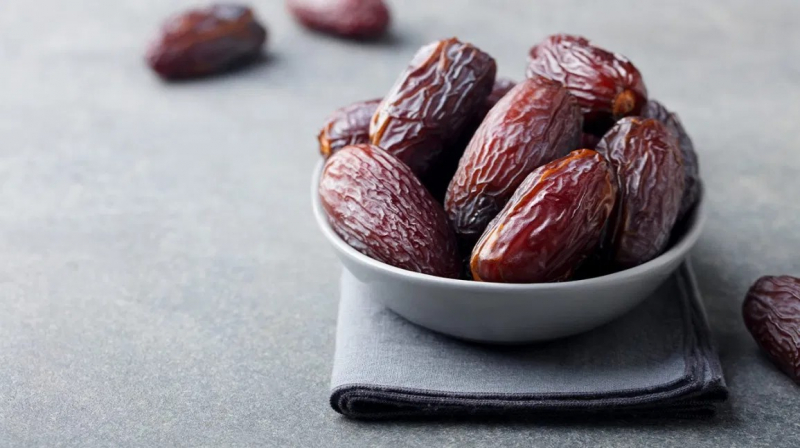
Dates -
Prunes are nutritious dried plums with a lot of flavors. The following nutrients are included in a 1-ounce (28-gram) serving of prunes:
- Calories: 67
- Protein: 0.6 grams
- Fat: 0.1 grams
- Carbs: 18 grams
- Fiber: 2 grams
- Vitamin K: 14% of the DV
- Potassium: 4.4% of the DV
Prunes have a reputation for relieving constipation as well. Prunes are a good source of both insoluble and soluble fiber. Their fiber content may help your stool gain volume and go through your digestive tract more quickly. Eating a serving or two of prunes can help you maintain gastrointestinal health by promoting regular bowel movements. Prunes are a simple way to enhance your calorie intake and promote healthy weight gain because they have a long shelf life and are simple to incorporate into your diet. They are delicious on their own, but you can add them to your favorite salads, smoothies, and baked goods to enjoy them as well.
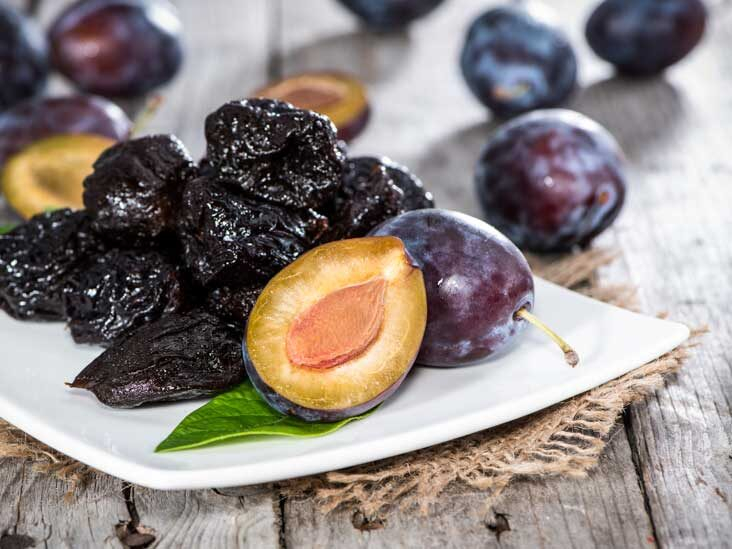
Prunes 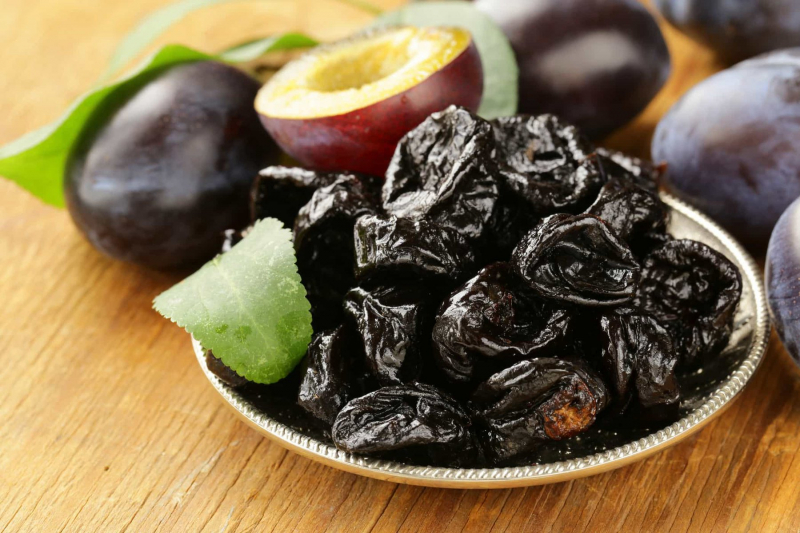
Prunes -
A common yellow stone fruit that tastes good both fresh and dried, apricots are a favorite. The following nutrients are found in a 1-ounce (28-gram) serving of dried apricots:
- Calories: 67
- Protein: 0.8 grams
- Fat: 0.1 grams
- Carbs: 18 grams
- Fiber: 2 grams
- Vitamin A: 6% of the DV
- Vitamin E: 8% of the DV
One cup of dried apricots provides 94% of your body’s daily need for Vitamin A and 19% of its iron. Dried apricots also contain potassium and antioxidants and have been known to lower cholesterol and improve digestion. Dried apricots are a great source of calories, as well as beta-carotene, lutein, and zeaxanthin, three plant pigments that promote eye health. Dried apricots mix nicely with cheese and nuts, which are both rich sources of calories and fat and can help in weight gain. They also make a great late-afternoon pick-me-up snack.
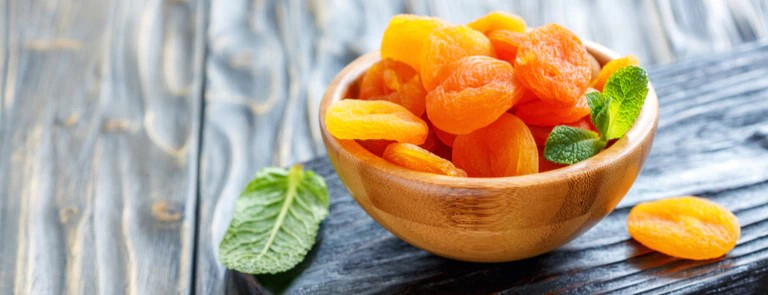
Dried apricots 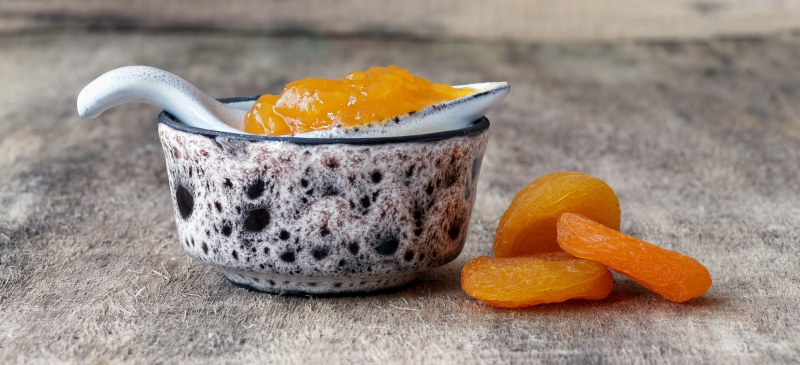
Dried apricots -
Figs are a well-liked fruit with a sweet-yet-mild flavor that may be enjoyed both fresh and dried. The nutrients in a 1-ounce (28-gram) serving of dried figs are as follows:
- Calories: 70
- Protein: 1 gram
- Fat: 0.3 gram
- Carbs: 18 grams
- Fiber: 3 grams
- Potassium: 4% of the DV
- Calcium: 3.5% of the DV
Figs are rich in nutrients and may provide a number of health benefits. They might help you control your blood sugar levels, encourage good digestion, and lower your risk of heart disease. Dried figs may be more effective at treating constipation than fresh figs. They are delicious on their own or when used as a garnish over salads, yogurt, or oats. In addition, they go great with cheese and crackers. Some people prefer to boil dried figs in water for up to 10 minutes to soften them.
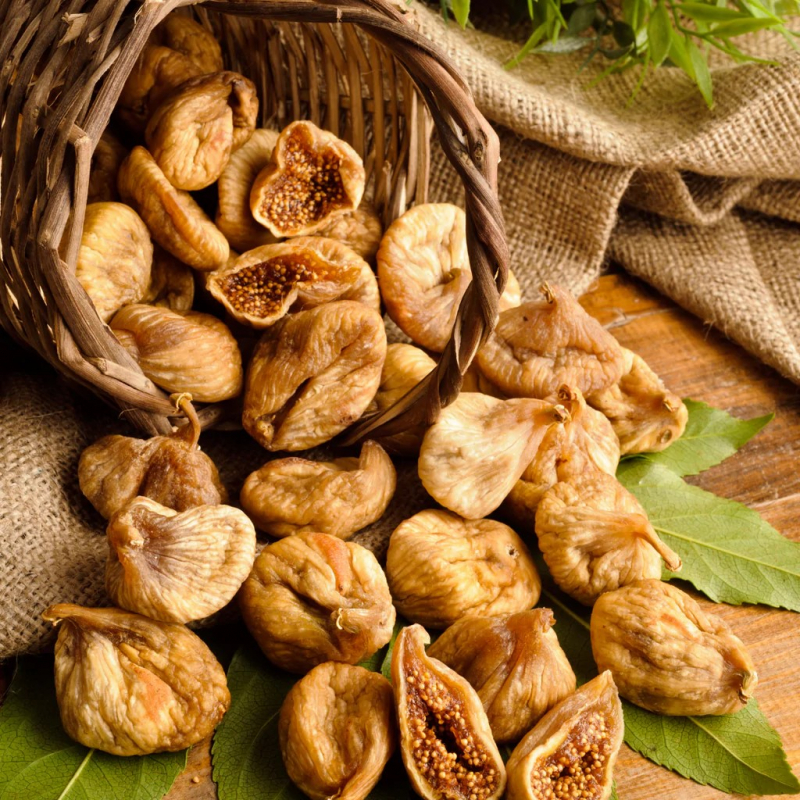
Dried figs 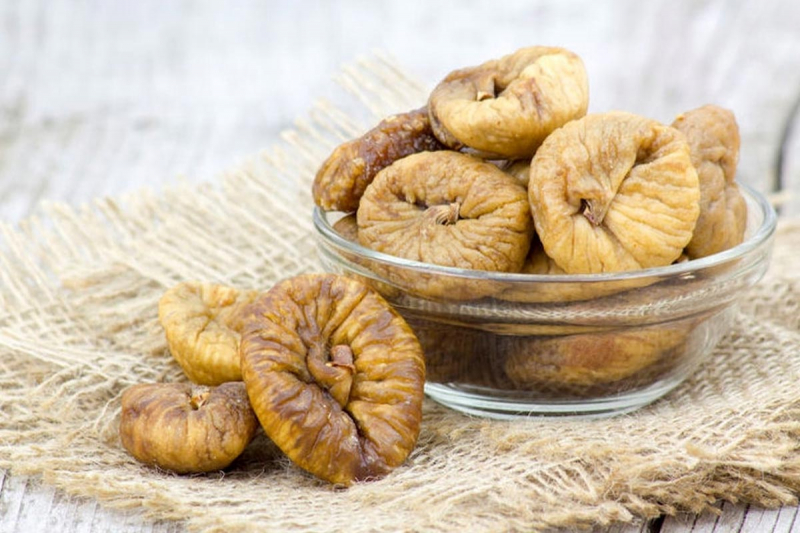
Dried figs -
Dried grapes come in a variety of shapes and colors and are known as raisins. While the word typically characterizes all varieties of dried grapes in the United States and Canada, it only refers to large, dark-colored varieties in Australia, New Zealand, Ireland, and the United Kingdom. The following nutrients are contained in a 1-ounce (28-gram) serving of raisins:
- Calories: 85
- Protein: 1 gram
- Fat: 0.1 grams
- Carbs: 22 grams
- Fiber: 1 gram
- Potassium: 4.5% of the DV
- Iron: 3% of the DV
Raisins are a great snack option that may supplement your diet with a variety of nutrients. According to research, raisins can lower blood pressure and blood sugar levels, which lowers your risk of heart disease. Raisins' fiber content helps to lower LDL (bad) cholesterol, which helps ease the strain on your heart. Additionally, raisins are a significant source of magnesium, manganese, copper, and numerous B vitamins. You may easily enhance your calorie intake by including raisins in your diet. They go well with nuts, yogurts, cheeses, salads, and oats.
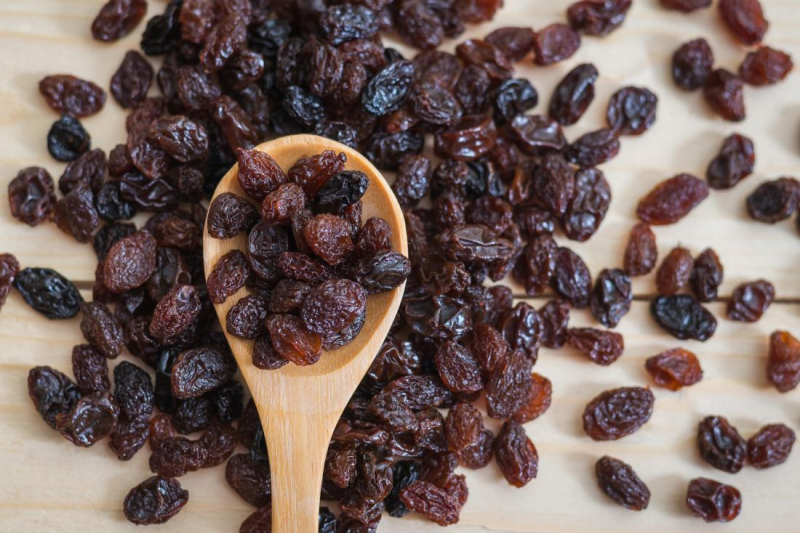
Raisins 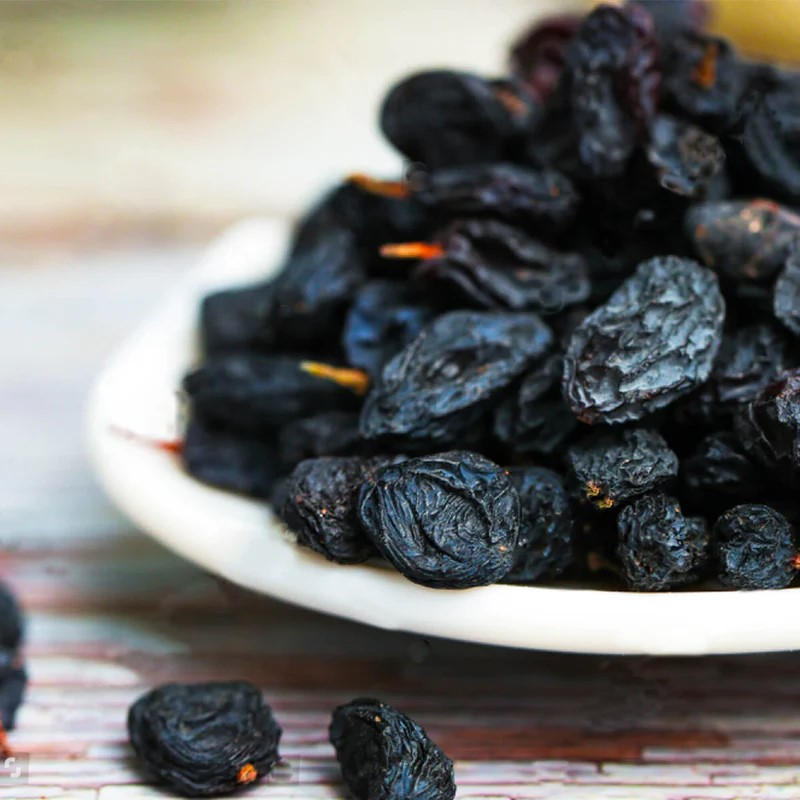
Raisins -
Sultanas are a different variety of dried grape, like raisins. However, they are primarily made from Thompson Seedless green seedless grapes. Due to their lighter color, sultanas are frequently referred to as "golden raisins" in the United States. The following nutrients are contained in a 1-ounce (28-gram) serving of sultanas:
- Calories: 91
- Protein: 0.7 grams
- Fat: 0 grams
- Carbs: 22 grams
- Fiber: 0.7 grams
- Iron: 4.2% of the DV
Raisins contain healthy vitamins and minerals. They are also fat-free and cholesterol-free, high in antioxidants, and an excellent source of fiber. They also contain notable amounts of potassium, copper, vitamin B6, and manganese. Sultanas are an easy way to up your calorie intake because they may be eaten similarly to raisins. From breakfasts to desserts to savory dinners, there are countless possibilities. Eat them on their own or with salads, nuts, yogurts, and cheeses.
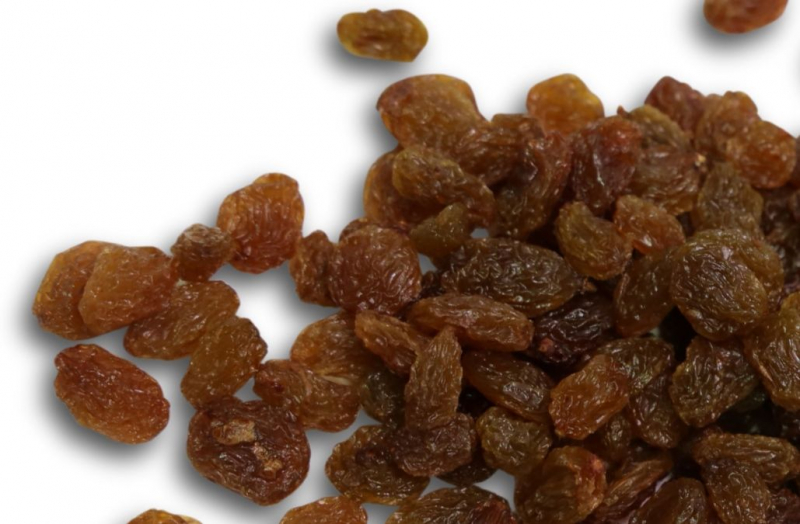
Sultanas 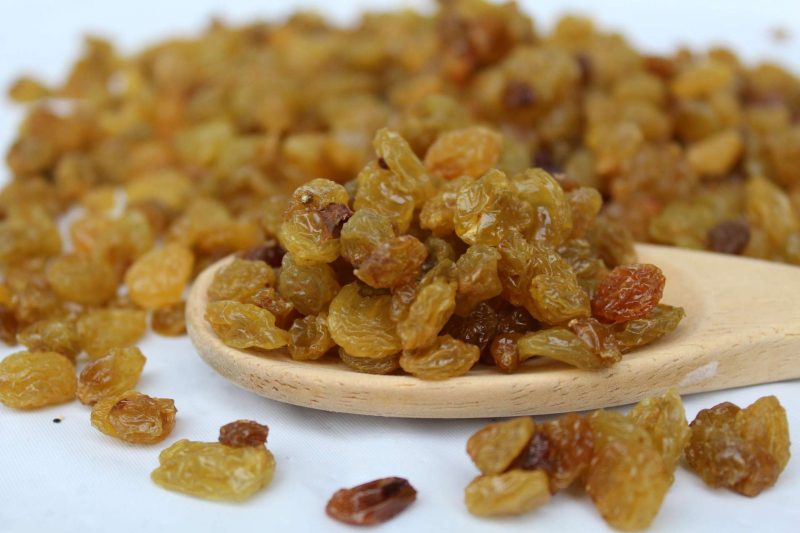
Sultanas












